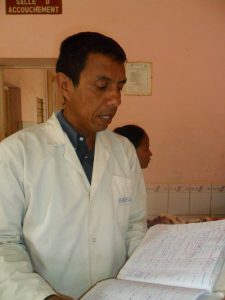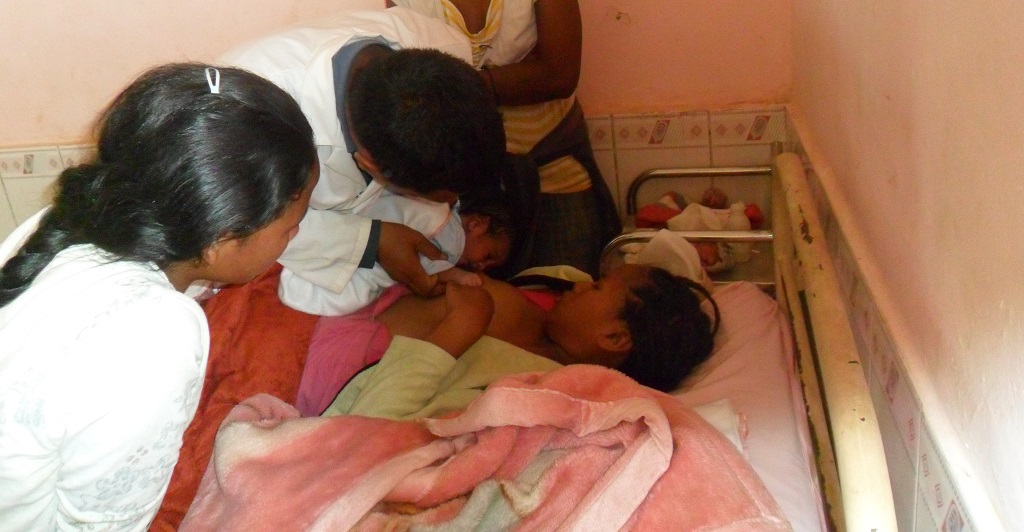Were it not for an MCSP training in obstetrical emergencies, the doctor would have had to refer the first time mother in his care to the hospital in Antananarivo, an hour away. In addition to the financial costs to the family, this delay in care would greatly increase the chances of losing the patient.
Thankfully, Dr. Serge Rakotoarison knew what to do.
As Head of the Maternity Department at Andoharanofotsy Health Center – a public facility near Madagascar’s capital – he sees many cases like Sylvia Raharinirina. The 21-year-old woman came to the health center for the birth of her first baby and, initially, everything was progressing smoothly. However, 30 minutes after the birth, Sylvia suddenly began exhibiting symptoms of shock: low blood pressure, headache, blurred vision, and dizziness.
“If I hadn’t been trained by MCSP, I wouldn’t be able to cope accurately with such an emergency,” Dr. Rakotoarison said. “First, I can easily detect the clinical signs and make rapid diagnosis. After that, I have only to follow the treatment protocols.”
He immediately searched for the cause of shock by palpating Sylvia’s uterus. It was not well contracted – meaning that bleeding was occurring – even though Dr. Rakotoarison had correctly performed active management of the third stage of labor. He remained calm and applied what he learned in the MCSP training: uterine massage, oxytocin injection (20 IU), and intravenous fluids. After a few minutes, the young woman’s situation improved.

Andoharanofotsy Health Center has a caseload of more than 2,000 deliveries per year, making it one of the busiest health facilities in the Analamanga region. “Before we received the training from MCSP, we had to refer every complicated case,” Dr. Rakotoarison said.
Thankfully, MCSP trainings changed this and cases like Sylvia’s are now managed in house. Four midwives and two doctors from the facility have been trained on topics ranging from humanization of care and infection prevention to maternal and newborn essential care. The multi-day trainings include skills practice on mannequins in addition to traditional instruction.
MCSP uses the “low dose, high frequency” training approach to ensure that 100% of providers trained master all the skills of each training session. And after trainings, MCSP also carries out supportive supervision activities to ensure that quality of care is being maintained by providers.
These efforts fit into MCSP’s larger goal of reducing maternal and neonatal mortality in Madagascar by implementing evidence-based interventions along the continuum of care – from pregnancy to the postpartum period. It builds on work begun under USAID’s predecessor flagship Maternal and Child Health Integrated Program, ultimately targeting 16 priority USAID regions (including approximately 75 districts), and working at all levels of care to improve the capacity of the country’s health providers.
Andoharanofotsy Health Center is special, as it’s one of just three MCSP clinical training sites for providers in the Analamanga region. Moreover, Dr. Rakotoarison now serves as a national trainer at the facility, having been trained by MCSP to train regional trainers who, with MCSP regional staff, in turn train health providers at the district and primary health center levels.
For patients like Sylvia, Dr. Rakotoarison’s training enabled him to act swiftly to secure a healthy outcome for her and her baby. And for many more mothers and newborn, these trainings will mean the difference between life and death, or thriving and disability.

